film diperankan fran c3 a7oise fabian
 In an increasingly crazy world Lino...
In an increasingly crazy world Lino...At The End Of The Day 2024
In an increasingly crazy world, Lino, who has decided to leave everything behind, will come to realise that, at the end of the day, everything that happens to us is for our own good!
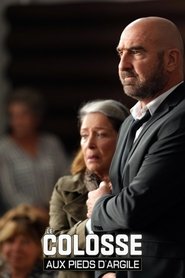 Sbastien is a former rugby player...
Sbastien is a former rugby player...The Fragile Colossus 2022
Sébastien is a former rugby player and a true colossus. Between the ages of 12 to 16, he was a victim of rape by a beloved relative. Thirty years later, he has failed to speak out. After he meets a little colossus like him, he is compelled to make the right choice.
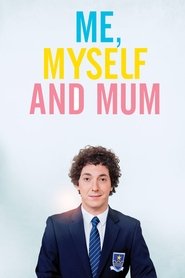 How to become a man when...
How to become a man when...Me, Myself and Mum 2013
How to become a man when your mother and your closed circle have decided otherwise? This is the challenge Guillaume took up. The film recounts Guillaume's tragicomic battle from the young age of eight, as he adopts the role of a girl then of a homosexual... until, aged 30, he meets the woman who, after his mother, will become the other woman in his life. Beyond this story of a heterosexual coming-out, the film tells the tale of an actor who never stopped loving women, maybe even a little too much.
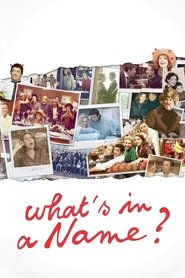 Vincent a wealthy real estate agent...
Vincent a wealthy real estate agent...What's in a Name 2012
Vincent, a wealthy real estate agent, is invited to dinner by his sister Elizabeth and her husband Peter, both professors in Paris. Claude, a childhood friend and trombonist in a symphony orchestra, is also present. Vincent brings news from the prenatal examination of his and his wife Anna's unborn son. The name chosen by the soon-to-be parents strongly offends the others for many reasons. The dispute between the guests quickly escalates and before long the resurgence of old grudges and hidden secrets is unavoidable ...
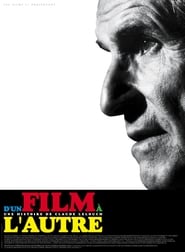 On April 13 2011 Les Films 13 production company...
On April 13 2011 Les Films 13 production company...D'un film à l'autre 2011
On April 13, 2011, Les Films 13 production company turned 50. How can one celebrate an anniversary of this sort ? By simply making "another" film that would sum up all the earlier ones. D'un film à l'autre is hence a kind of anthology of the films produced Les Films 13 since the 1960s (short and feature films written and directed for the main part by Claude Lelouch), a best-of of half a century of cinema, going from Le Propre de l'homme to What Love May Bring. A biography in images of a filmmaker as admired as he is criticized. In reality, D'un film à l'autre is more than a series of film excerpts, interviews, and making-of documents (some of which possess an undeniable historical value, like that from A Man and A Woman, or the final performances of Patrick Dewaere).
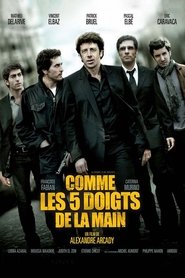 Five brothers similar yet different raised...
Five brothers similar yet different raised...Comme les 5 doigts de la main 2010
Five brothers similar yet different, raised by a mother widowed too early. One of them had left the family when he returns, pursued by a gang of smugglers, he find shelter in his family while reveling them a dark secret. The five brothers, together, will find the energy to defend themself and the means to avenge the memory of their murdered father...
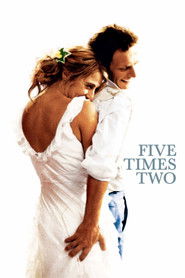 As young French couple Gilles and...
As young French couple Gilles and...Five Times Two 2004
As young French couple Gilles and Marion officially separate, we see, in reverse order, the milestone moments in their relationship: Gilles revealing his unfaithfulness at a tense dinner party; Marion giving birth to their premature son while Gilles is elsewhere; Gilles and Marion's joyous wedding; and, finally, the fateful moment when they meet as acquaintances at an Italian beach resort, and their love affair begins.
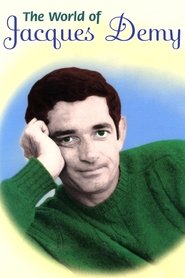 Agns Vardas documentary portrait of her...
Agns Vardas documentary portrait of her...The World of Jacques Demy 1995
Agnès Varda's documentary portrait of her late husband, Jacques Demy. A companion piece to her Jacquot de Nantes.
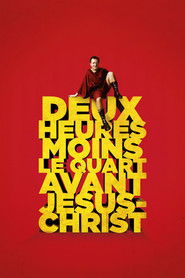 In antique Rome a simple pepboy...
In antique Rome a simple pepboy...Quarter to Two Before Jesus Christ 1982
In antique Rome, a simple pepboy for chars becomes involved in a coup against Cesar. Rahatlocum is a North African Roman colony where Julius Caesar came to spend an expensive holiday. The revolt rumbles among the small people who find a leader in the person of Ben-Hur Marcel.
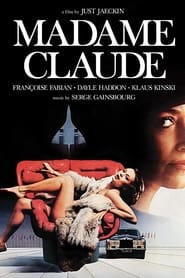 Based on a true story Madame...
Based on a true story Madame...Madame Claude 1977
Based on a true story. Madame Claude, a well connected Parisienne with dark past, runs a network of high-class call girls. She sends her girls to any place in the world to satisfy sexual desires of wealthy and powerful men. Claude's manipulations also involve big business and politics. Meanwhile, photographer David Evans is trying to clear his own criminal record by providing the authorities with pictures of Claude's girls with important clients in compromising positions. But powerful men can do anything to keep their secrets...
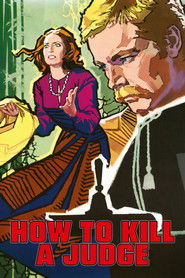 A filmmakers popular movie about a...
A filmmakers popular movie about a...How to Kill a Judge 1975
A filmmaker's popular movie about a corrupt judge who is killed by the Mafia seemingly foretells the murder of a magistrate who orders the film's seizure.
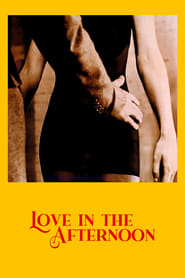 Frederic leads a bourgeois life he...
Frederic leads a bourgeois life he...Love in the Afternoon 1972
Frederic leads a bourgeois life; he is a partner in a small Paris office and is happily married to Helene, a teacher expecting her second child. In the afternoons, Frederic daydreams about other women, but has no intention of taking any action. One day, Chloe, who had been a mistress of an old friend, begins dropping by his office. They meet as friends, irregularly in the afternoons, till eventually Chloe decides to seduce Frederic, causing him a moral dilemma.
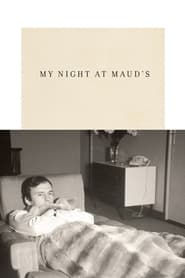 The Catholic JeanLouis runs into an...
The Catholic JeanLouis runs into an...My Night at Maud's 1969
The Catholic Jean-Louis runs into an old friend, the Marxist Vidal, in Clermont-Ferrand around Christmas. Vidal introduces Jean-Louis to the modestly libertine, recently divorced Maud and the three engage in conversation on religion, atheism, love, morality and Blaise Pascal's life and writings on philosophy, faith and mathematics. Jean-Louis ends up spending a night at Maud's. Jean-Louis' Catholic views on marriage, fidelity and obligation make his situation a dilemma, as he has already, at the very beginning of the film, proclaimed his love for a young woman whom, however, he has never yet spoken to.
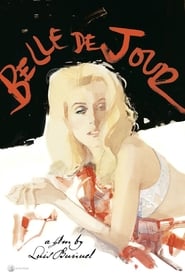 Beautiful young housewife Sverine Serizy cannot...
Beautiful young housewife Sverine Serizy cannot...Belle de Jour 1967
Beautiful young housewife Séverine Serizy cannot reconcile her masochistic fantasies with her everyday life alongside dutiful husband Pierre. When her lovestruck friend Henri mentions a secretive high-class brothel run by Madame Anais, Séverine begins to work there during the day under the name Belle de Jour. But when one of her clients grows possessive, she must try to go back to her normal life.
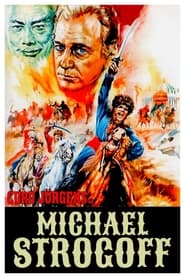 When Emir Feofar Khan leader of...
When Emir Feofar Khan leader of...Michael Strogoff 1956
When Emir Feofar Khan, leader of the Tartar hordes, takes up arms and invades the steppes of Eastern Siberia, Czar Alexander II of Russia entrusts the brave officer Michael Strogoff with a dangerous mission.
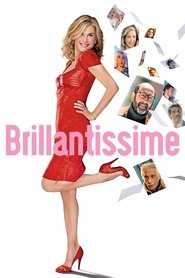 After getting dumped on Christmas Eve...
After getting dumped on Christmas Eve...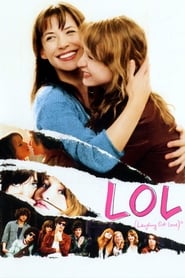 Lola is a striking teenaged girl...
Lola is a striking teenaged girl...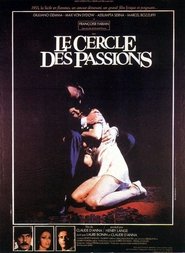 An aristocratic Sicilian family living in...
An aristocratic Sicilian family living in...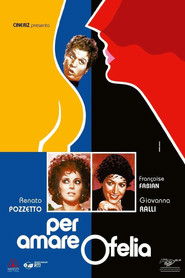 Although he is in his thirties...
Although he is in his thirties...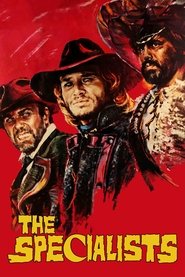 Hud Dixon returns to his hometown...
Hud Dixon returns to his hometown...